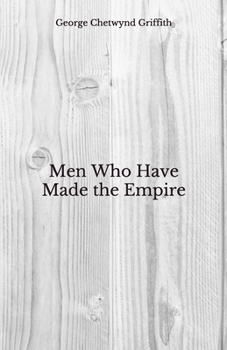Men Who Have Made the Empire: Beyond World's Classics
The England and Scotland of the eleventh century were peopled, not by nations, but by tribes mostly at bitter and constant war with each other. There were still Jutes and Angles, Picts and Scots, Danes and Swedes and Norwegians, each occupying their own little stretch of country, and governed, more or less effectually, by their chieftains, in proof of which it is enough to recall the fact that Harold's last fight but one was against his own brother, who had come across the Narrow Seas at the head of a miscellaneous crowd of hungry pirates to steal as much as he could of the ownerless heritage that Edward the Confessor had left behind him.A good deal of sentiment, more or less born of deftly-written romances, has glorified the memory of this same Harold. Whether it was deserved or not does not concern us now, any more than does his right or unright to the throne of England. It is enough here to grant him all honour as an able leader of armies, and a man who knew how to snatch victory from defeat, and glory from disaster by dying like a hero surrounded by the corpses of his foes.The idle question whether he or William had the better right to the crown of England may be left to those who care for such quibbling. Let us, at the outset, in the words of the Sage of Chelsea, "clear our minds of cant." There is no "right" or "wrong" in these things, saving only the eternal right of the strongest and wisest-the fittest or most suitable, in short, to wield power and dominion whether the less fit like it or not. The peoples are thrust headlong into the fiery crucible of War, and, on the adamantine anvil of Destiny, the Thor's Hammer of Battle beats and crushes them into the shape that God has designed for them. It seems a rude method, but in many thousands of years we have found no other, so at least we may conclude that it is the best one known.There is a very deep meaning in the seemingly flippant and almost impious saying of Napoleon: "God fights on the side of the biggest battalions." He does-but you must reckon the bigness of the battalions, not only by their numbers, but by the value of their units, remembering always that one man with a stout heart and a cause he honestly believes in is worth a score who have neither heart nor faith.Just such a man was William the Norman, son of Robert the Magnificent, otherwise styled the Devil, and Arlette the Fair, daughter of Fulbert the Tanner of Falaise. It is in this birth of his that we find the first clue to his real greatness. He was born of a union unhallowed by the sanction of the Church, among a people proud beyond all modern belief of their royal sea-king ancestry.How did he come to achieve this almost miraculous triumph over a prejudice and hostility of which we can now form but a very dim idea?
Format:Paperback
Language:English
ISBN:B08J1WGYY7
ISBN13:9798684920769
Release Date:January 1
Publisher:Independently Published
Length:188 Pages
Weight:0.54 lbs.
Dimensions:0.4" x 5.5" x 8.5"
Customer Reviews
0 rating





